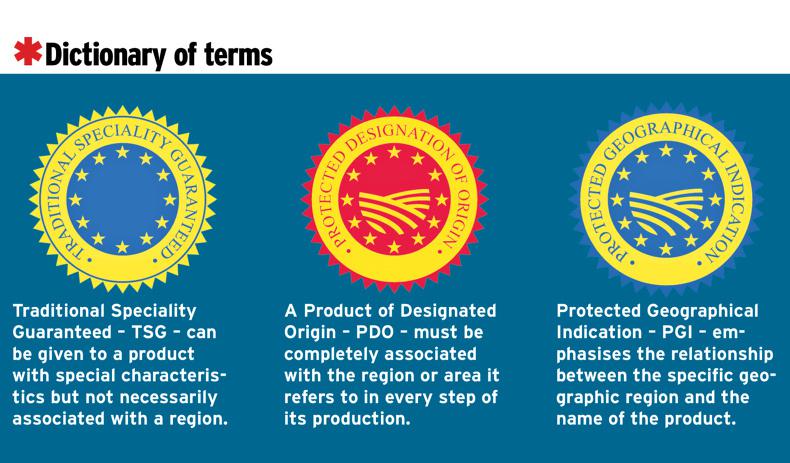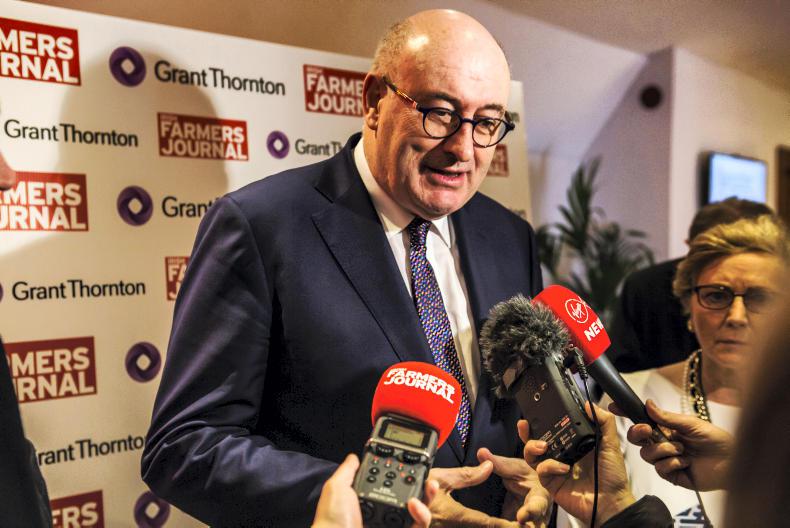In a wide-ranging address to the Navigating Global Trade conference last Friday, the European Commissioner for Agriculture Phil Hogan suggested that an application for protected geographical indication (PGI) should be applied for in relation to Irish suckler beef.
PGIs aren’t particularly common in Ireland, though there are a number of products such as Connemara Hill Lamb, Waterford Blaas and Sneem Black Pudding that hold the status; while in the north we have Armagh Bramley apples and Comber early potatoes.
Currently, there are no PGIs for beef in Ireland, while Welsh Beef and Lamb as well as Scotch Beef and Lamb have held PGIs for over a decade. In England, a number of southwestern counties succeeded in an application for West Country Beef and Lamb in 2014.

PGIs are an EU designation of a food, agricultural product or wine that emphasises the relationship between the specific geographic region and the name of the product, where the quality, reputation or other characteristic is linked to its geographical origin.
Therefore, the blaa is a bread very much linked with Waterford, Armagh is known as the Orchard County and Comber earlies are associated with the area around Comber in Co Down.
A successful application for a PGI doesn’t have any specific attribute that ensures success. It is all about making a persuasive case that an area or region gives a product uniqueness.
PGIs are a much bigger issue in mainland Europe, particularly in the Mediterranean states where they are common across all foodstuffs and wines. They are considered the intellectual property of regional food specialities and are often one of the most difficult issues to resolve in EU trade negotiations.
Other categories
While PGIs are the most common regional identifiers within the EU, there are other categories. Product of Designated Origin (PDO) has a stricter interpretation, as it has to have the entire process attributed to a specific area, whereas PGIs require just one part of the process to take place in a specific area.
An example of a PDO is Orkney Beef – the animals spend their entire lives on the Orkney Islands, off the coast of Scotland, and are processed there. It is the same with Lough Neagh fishing in Northern Ireland, where the fish are caught in Lough Neagh and processed in the vicinity of the lough. Dairygold’s speciality cheese facility in Mogeely, Co Cork, produces Imokilly Regato which has a PDO designation and is a cheese made from milk produced in the area.
Another category of food speciality is for Traditional Speciality Guaranteed (TSG). In this case it is the product, not the region or area, that is the focus, with the traditional aspects such as the way the product is made or its composition being the indicator.
Although Scotland and Wales were successful with PGI applications, the EU does not accept applications that cover an entire country. Also, Scotland and Wales are technically areas/regions of the UK and the application process was more tolerant in 2003/2004 when they received approval.
It would certainly be impossible to secure approval of a PGI for all Irish beef, as it would essentially be a branding of the national production. If it was limited to suckler beef only then the chances would increase.
However, one category of EU designations that would fit perfectly with suckler beef is the TSG. In this case, it is the process not the location that matters and suckler beef production is confined to Britain and Ireland and some areas of western France.
Is it worth it?
Securing a PGI, PDO, or TSG designation requires a well thought out application that meets the criteria and tells a good story, but it is achievable. However, securing the designation isn’t in itself a guarantee of more money, rather it is an accreditation that provides the basis for building a brand, and once secured cannot be copied. Scotch beef has a PGI accreditation and is usually the highest-priced beef in the UK, whereas West Country Beef and Lamb are more closely aligned with general English beef prices.
Connemara Hill Lamb has held a PGI status for 15 years and is produced by a group of Connemara farmers for Dunnes Stores and processed by Jennings in Ballinrobe.






 This is a subscriber-only article
This is a subscriber-only article










SHARING OPTIONS: